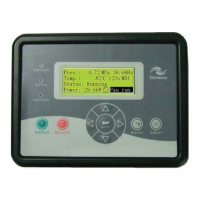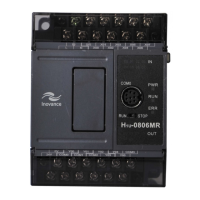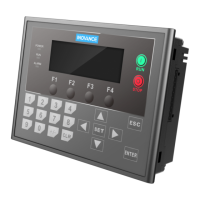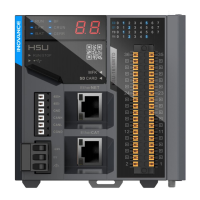627
9
9 Communication 9.6.3 CANlink Software Conguration
• If you select a conguration item and press
Insert
, an empty conguration line will be added following the item. If
you select a conguration item and press
Delete
, the item will be deleted. In addition, you can press shortcut keys
or right-click an item to copy-paste or delete it, and insert or delete a line.
● Register
Host and PLC register values correspond to D elements. IS and MD register values correspond to
parameter numbers. TCM/NTCM corresponds to BFM.
● Number of registers
It is the number of sent or received consecutive D elements or parameter numbers.
● Point-to-multipoint conguration
When a sending station is also a receiving station, the station applies the point-to-multipoint conguration,
in which no receiving station is specied. If you enter the sending station number into the receiving
conguration table, the congured station can receive data sent by the sending station. The received
register is the D element or parameter number corresponding to the receiving station.
● Received data
The entries in the gray background indicate data received from other stations, including point-to-point and
point-to-multipoint data. You can see which element or parameter number of which station will affect the
congured station.
● Receiving conguration
Receiving conguration applies to receiving point-to-multipoint data from other stations. Each station can
receive point-to-multipoint data from eight stations.
Example
Diagram of receiving conguration
In this example, the master station (station 1) sends the D1000 value in the form of a point-to-multipoint
frame to the receiving station D192 at an interval of 100 ms. Based on the receiving conguration of slave
stations 10, 20, and 30, slave stations 10 and 20 will receive and write the frame in D192, while station 30
will ignore the frame.
• Point-to-multipoint conguration enables data to take effect simultaneously. It is equivalent to master station
synchronization conguration; however, the master station is not the only sending station. Each station can receive
point-to-multipoint data from a maximum of eight stations. However, the number of stations receiving point-to-
multipoint data sent by each station is not limited. That is, all stations other than the sending station can receive
data if the sending station number is entered into the receiving conguration table.
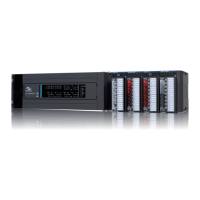
